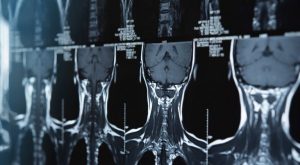This story first appeared on smp.ok.ubc.ca
 An international research team, co-led by researchers at the University of British Columbia, has received a $48 million grant (US$36.5M) for research that aims to improve long-term outcomes for patients with spinal cord injury (SCI).
An international research team, co-led by researchers at the University of British Columbia, has received a $48 million grant (US$36.5M) for research that aims to improve long-term outcomes for patients with spinal cord injury (SCI).
The five-year project—made possible through a grant from the United States Defence Advanced Research Project Agency (DARPA)—will revolutionize SCI treatments using innovative, implantable technologies.
Dr. Chris West, associate professor in UBC’s department of cellular and physiological sciences, and Dr. Babak Shadgan, assistant professor in UBC’s department of orthopaedics, are part of the UBC team, led by Dr. Brian Kwon, Canada Research Chair in Spinal Cord Injury and professor in the UBC faculty of medicine’s department of orthopaedics. With the aim of restoring lost function in people living with SCI, the researchers will also use implantable technologies to electrically stimulate the spinal cord and record signals from the brain to drive voluntary movements.
The research team is tackling the entire continuum of care, beginning with the stabilization of acute injury using revolutionary biologic and engineering techniques. They will also address the challenges of chronic paralysis by regenerating lost connections between the patient’s brain and spinal cord through the delivery of neural stem cells to the injury site through a 3D-printed biodegradable scaffold.
The international research group is being led by Dr. Karen Moxon at the University of California, Davis, in conjunction with the UBC team, Dr. Gregoire Courtine at École Polytechnique Fédérale de Lausanne, and Dr. Mark Tuszynski at the University of California, San Diego.
The project team is comprised of 12 institutions: UBC, UCDavis, UCSD, EPFL, UC San Francisco, University of Calgary, biotech startups Pathonix Innovation Inc., GTX Medical, and Teliatry, non-profit institutions Wyss Center for Bio and Neuroengineering, and Battelle Memorial Institute and a regulatory consultant firm NetValue BioConsulting Inc.